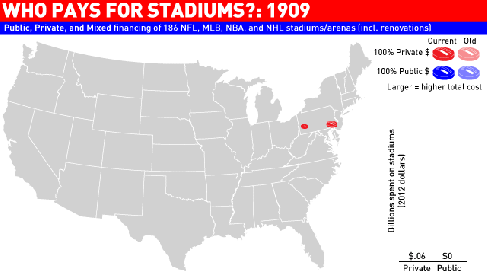This past week, NBC announced that they will show every single match of the Premier League campaign in the United States beginning at the start of next season, which begins at the end of the summer in 2013. This means that NBC will literally use its empire of networks to broadcast Premier League games from England during the weekends. There is even a graphic going around, showing that on May 11th, 2014 – what is referred to as “Championship Sunday” or the last day of the Premier League season – there will be games on the following NBC channels: NBC, NBC Sports, USA, Bravo, CNBC, SyFy, Esquire, MSNBC, E! and so forth. I’m sorry, but Premier League on SyFy seems to be quite a reach, but NBC has paid $250 million for the 2013 Premier League rights, and they want to do things the right way. As their press release notes:
Details of the 2013-2014 NBC Sports Group Premier League programming include:
- All 380 matches presented live on television with studio pre- and post-game coverage;
- All 380 matches streamed live via NBC Sports Live Extra;
- Games not aired on a designated NBCUniversal channel will be made available to distributors via Premier League Extra Time, a package of overflow television channels available at no extra cost for each of their customers who receives NBC Sports Network;
- Championship Sunday – May 11, 2014, when all 10 Premier League matches will be available live on a different NBCUniversal channel;
- 76 Spanish-language telecasts, 10 on Telemundo, 66 on Mun2;
- More than 600 hours of Premier League original programming.
NBC SPORTS LIVE EXTRA: Every Barclays Premier League match will be streamed live via NBC Sports Live Extra, the NBC Sports Group’s live streaming product for desktop, mobile and tablets and, in most cases, on the digital platforms of participating cable, satellite, telco and other video subscription services. The vast majority of Barclays Premier League matches will be streamed via “TV Everywhere,” available on an authenticated basis to subscribers of these services.
NBC happens to have the rights for Major League Soccer as well, which they pay $10 million a year for. In this current deal, NBC shows usually one or two MLS matches a week, with the Premier League they will be showing around 10 matches a week through the season. Some people have discussed that the deal would be beneficial for MLS, as it would draw more soccer fans to the NBC network who could then carry over watching Premier League matches to MLS matches. I believe that this logic doesn’t fully fit. First, the MLS matches would usually not transition smoothly with the Premier League, unless the MLS started playing at 10 or 11am, which would mean much less fans in the stadium. At this point in time, fans in the stadium are the lifeblood of the MLS, as the revenues from television, once distributed, aren’t even worth a quarter of a team’s salaries for a season. In this, the Premier League may not kill the MLS, but could draw some major attention away from the professional soccer in the U.S.
Time will tell how this deal affects MLS, but I personally think obtaining the Premier League rights was a great move by NBC. For many years, I was part of a that crowd of people who paid extra money to get Fox Soccer on their cable plans to watch matches early on Saturdays. Now, NBC will bring the Premier League to a national audience on over-the-air channels, meaning that people can watch certain Premier League matches without paying. I think that this move could really help heighten the popularity of the Premier League, though I’d be curious to see how well ratings do on NBC during college football season. The games wouldn’t overlap, but I am not sure how many college football fans will turn on their television sets early to catch Fulham play Everton.
 In research that has become very timely with the conclusion of the 2014 Sochi Winter Olympics, an article published in the International Journal of Sport Finance suggests that NHL teams who have players who played in the Winter Olympics are likely to experience a drop-off in success.
In research that has become very timely with the conclusion of the 2014 Sochi Winter Olympics, an article published in the International Journal of Sport Finance suggests that NHL teams who have players who played in the Winter Olympics are likely to experience a drop-off in success.


 Posted by ijsf
Posted by ijsf 